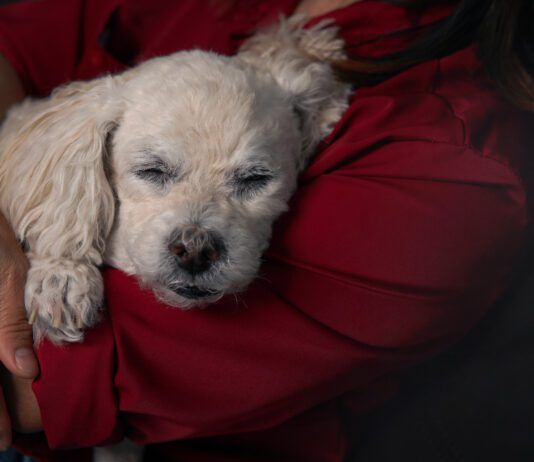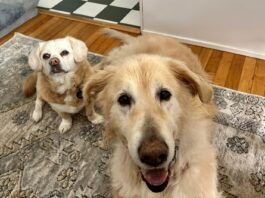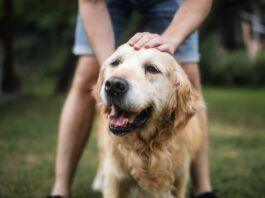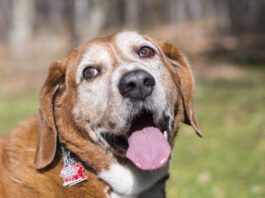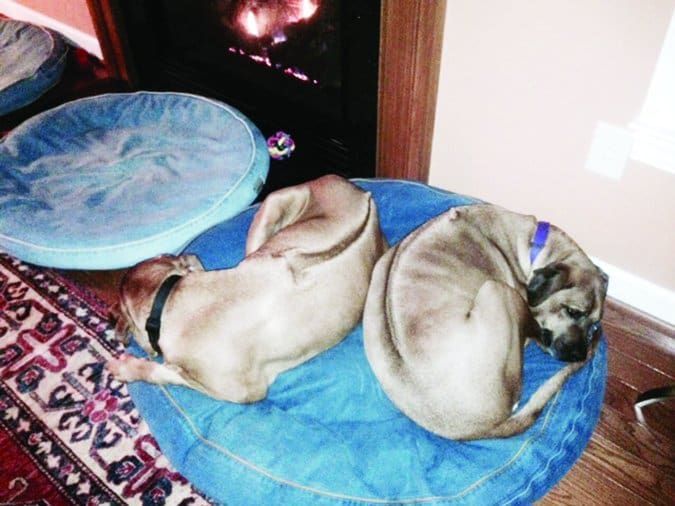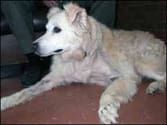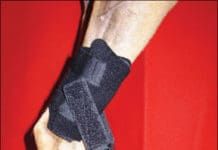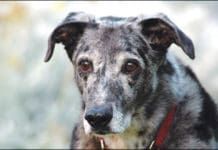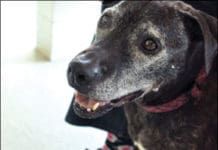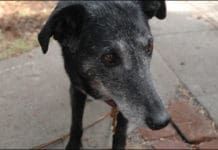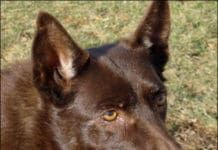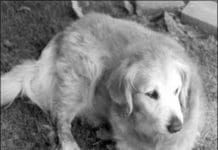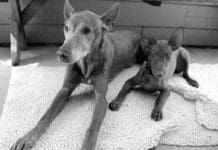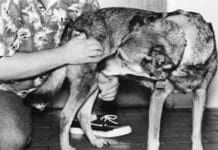Tips on Adopting a Senior Dog
When my husband asked me to come to the shelter where he worked to meet the 8-year-old Australian Shepherd he had fallen in love with and wanted to adopt, of course I said yes. When Paul first met Missy, she threw herself on her back at his feet, and he was hooked. When I saw her striking red merle coat, her stunning odd eyes" (one brown
Senior Supplements for Canine Cognitive Dysfunction
Canine cognitive dysfunction (CCD), also called cognitive dysfunction syndrome, is comparable to Alzheimer’s disease in humans. Dogs with CCD may show signs such as confusion, disorientation, anxiety, irritability, apathy, reduced interaction, house soiling, forgetfulness, and aimless wandering or pacing, especially at night. CCD can rob a dog of quality of life, and make living with an old dog difficult.
Older Dogs and Surgery
Some are reluctant to perform surgery on old dogs because of anesthesia risks or complications, but these risks are minimal in the case of most lipomas. Modern anesthesia protocols are far safer than they used to be, and complications are generally minor, usually limited to superficial infection or delayed healing. There is no reason not to remove lipomas from older dogs when they interfere with their quality of life.
Orthopedic Equipment for Dogs Designed for Increased Mobility and Extra Support
Do you have a dog recovering from orthopedic or neurologic surgery, one who has mobility issues, or a senior dog who has arthritis? If so, at some point, you have probably wished you could do something anything! to help make your dog's life (and your own) a little easier. I asked two veterinarians who specialize in canine rehabilitation to share some of their top picks for canine assistive/rehabilitative equipment. Laurie McCauley, DVM, CCRT, is founder and medical director of TOPS Veterinary Rehabilitation in Grayslake, Illinois, and is considered one of the pioneers in the field of veterinary rehabilitation. Evelyn Orenbuch, DVM, CAVCA, CCRT, recently opened Georgia Veterinary Rehabilitation, Fitness and Pain Management in Marietta, Georgia, and has focused on veterinary rehab medicine since 2003.
Has Your Senior Dog Started to Lose His Hearing?
If we're fortunate enough to have them live to old age, at some point, most of our canine companions begin to lose their hearing and may eventually be, for all intents and purposes, deaf. It's painful to watch a beloved dog become less and less responsive to his environment because he's unaware of what's going on around him, and even more so when it limits your ability to communicate with him. The thought of a hearing-impaired dog wandering off and not being able to hear your calls is frightening. Here are five things you can do if your dog's hearing isn't what it used to be.
Caring for an Elderly Dog
Aaron Epstein's 14-year-old Australian Shepherd-mix, Sam, was losing weight and his appetite wasn't the same. I just thought he was getting old because in addition to not eating with the same vigor
Cognitive Dysfunction Syndrome in Senior Dogs
Each of us has, at some point, wandered into a room and realized that we've forgotten why we've gone there. When that happens, chances are we are momentarily perturbed with ourselves, but typically we chalk it up to too much on the brain, remember why we're there, then move on. Should our dogs wander in the same fashion, it could well be a sign of cognitive dysfunction syndrome (CDS), a condition quite similar to Alzheimer's in humans. CDS happens when the aging process affects brain pathology, resulting in behavioral changes, including cognitive decline (memory and learning).
Training An Older Dog
You've no doubt heard the adage, You can't teach an old dog new tricks." If you have an older dog
Diet and the Older Dog
We all want our dogs to enjoy the highest quality of life for the longest possible time. Proper diet, adequate exercise, weight control, appropriate supplements, and good veterinary care can all help our dogs remain active and vibrant well into their senior years.
The Canine Aging Process
Aging is a natural process of all animals, and of all cells, tissues, and organs within the animal. Every individual animal ages at a different rate, and each type of tissue or organ system has its normal rate of proceeding through the aging process.
Canine Joint Health
Western medicine’s mechanistic theory regards the body’s joints simply as the anatomic sites where the lever action of bones enables body movement. However, joints are much more complex than this, anatomically, mechanistically, and functionally. And when disease exists within any joint, the result can be completely disabling – not only to the local area but also to the entire body.
Herbal Remedies for Treating Older Dogs
Old age should not be viewed as a downhill slide to inevitable suffering and death. Nor should chronic disease be perceived as part of growing old. Each year hundreds of elderly dogs are put to sleep prematurely – not because they are deathly ill, but because their guardians can’t get past their own fears of watching their companions grow old and die a natural death. Granted, it’s difficult to live in anticipation of a companion’s death, but with all things considered, this is really our problem, not theirs.


